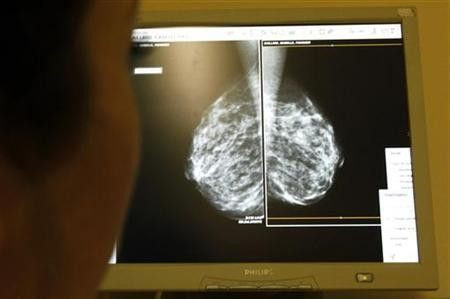Australian top court issues landmark decision against patent for cancer gene

The Australian High Court ruled that the BRCA1 gene, which is associated with an increase in breast and ovarian cancer risk, is not a “patentable invention”. With the landmark decision, no single company will be able to control research on the gene, or receive all the profits from testing for it.
This ruling overturns prior decisions that upheld patent claims for BRCA1 in Australia by US biotech company Myriad Genetics. Previously, the company won two earlier cases pertaining to patent claims in the federal court. However, the High Court now rules that the cancer gene cannot be patented, since it is not manufactured by Myriad.
In a unanimous vote, the court said that Myriad merely isolated the BRCA1 gene, and their claim of invention did not fall within the concept of a “manner of manufacture,” as required in Australia’s patent law.
The case dates back to December 2013, when the federal court of Australia ruled that Myriad Genetics, had the right to a patent over the BRCA1 gene. Two-time cancer survivor Yvonne D’Arcy from Brisbane lodged a lawsuit challenging this decision, arguing that the genes were naturally occurring in the human body and so were “discovered” rather than “invented”. D’Arcy hoped to make breast cancer genetic testing more affordable for everyone, and open up the research so new treatments for genetic diseases could be developed.
For its part, Myriad argued that its researchers had created an “artificial state of affairs” by isolating the gene from the human body. By patenting BRCA1, the company said it was insuring that research into the gene would be commercialised.
“While the invention claimed might be, in a formal sense, a product of human action, it was the existence of the information stored in the relevant sequences that was an essential element of the invention as claimed,” the High Court said in a statement.
The Australian top court’s decision comes two years after a similar ruling was made by the US Supreme Court, which ruled in June 2013 that naturally occurring DNA, such as the BRCA1 gene, could not be patented. The landmark ruling in Australia is expected to set a precedent for future cases over proprietary of the human genome.
However, it is not believed to affect the availability of BRCA1 testing in Australia, since Myriad’s patent had expired in August 2015. Approximately five percent of Australians carry the BRCA1 and BRCA2 gene, increasing the risk of developing breast cancer to between 40 and 85 per cent.
Contact the writer at feedback@ibtimes.com.au or tell us what you think below.




















